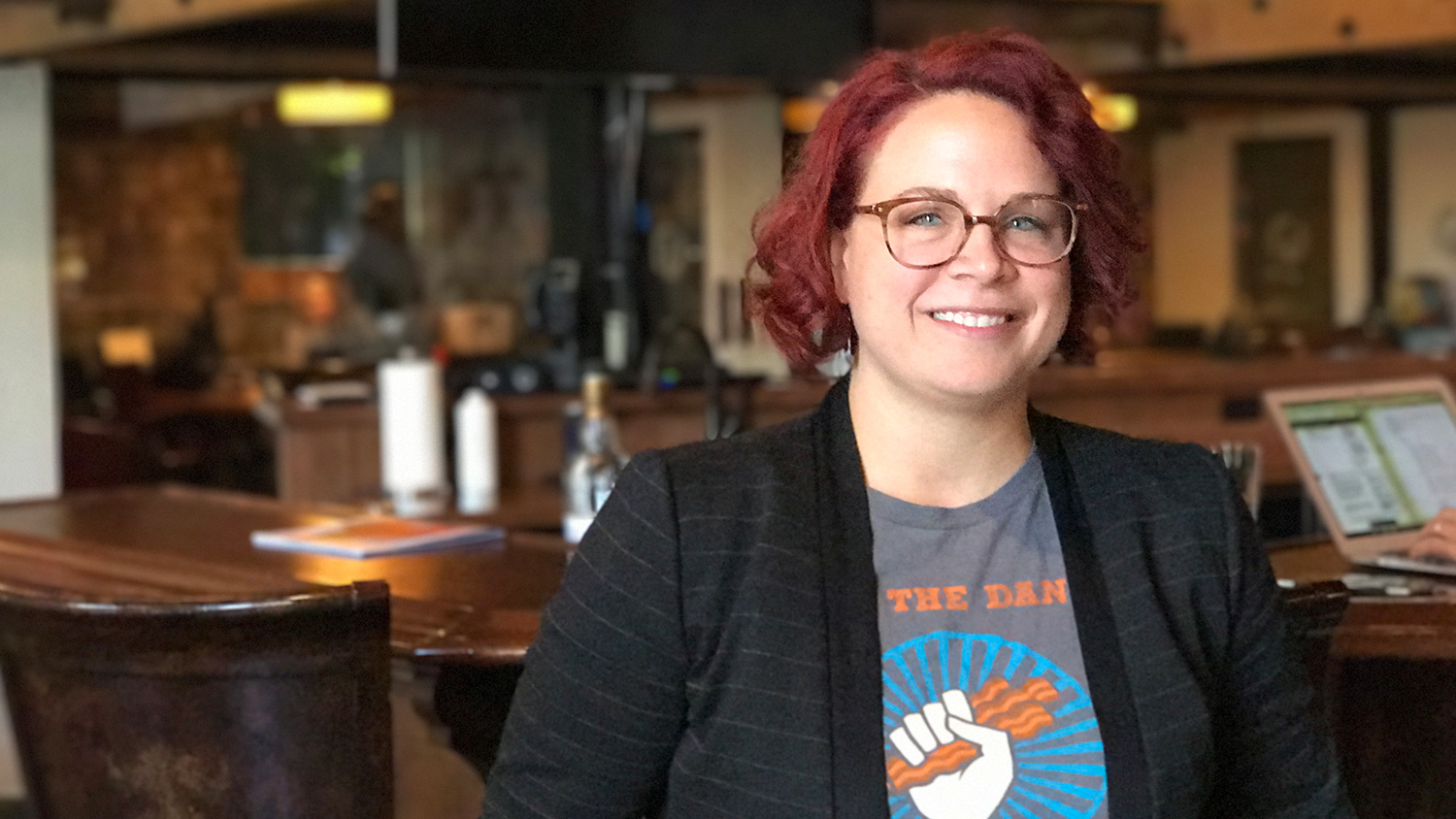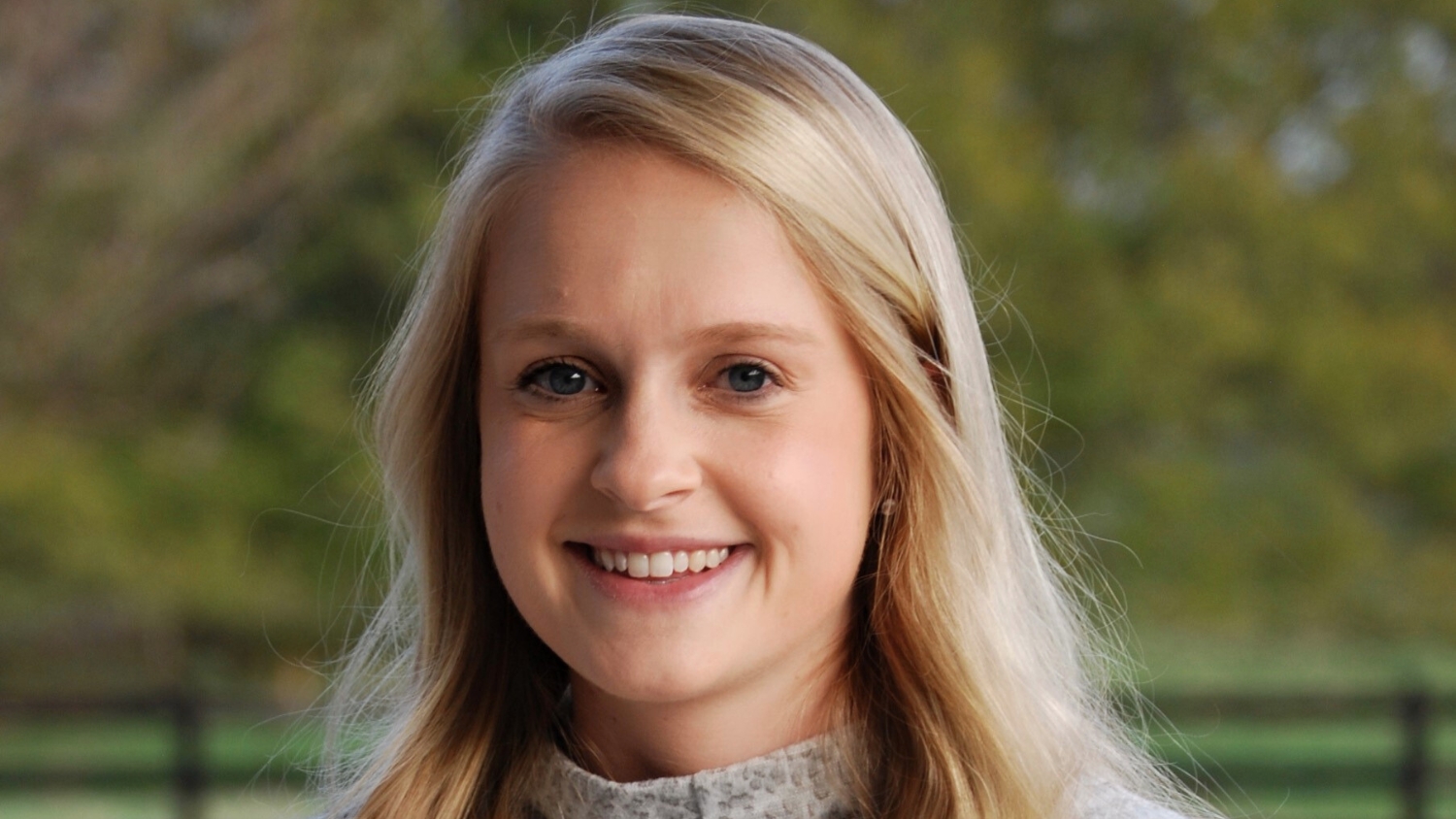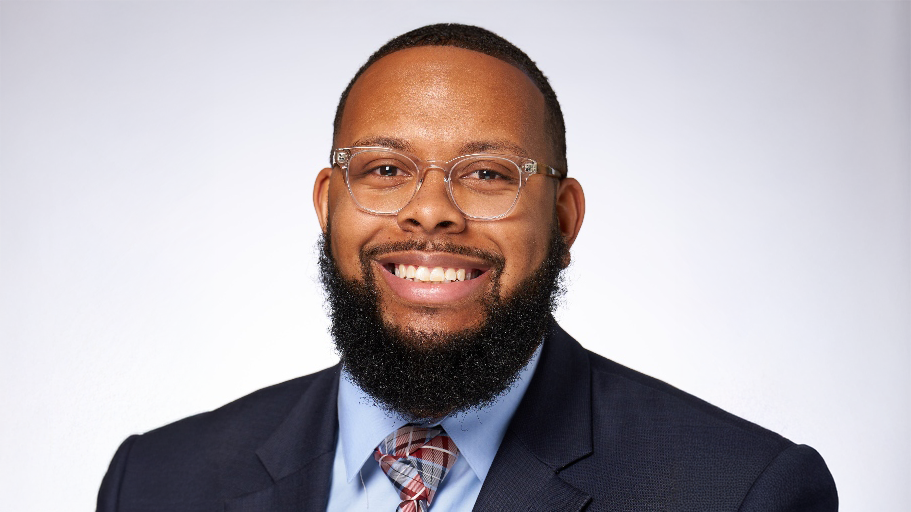Melissa Kennedy, Jenkins MBA ’06: Offers Tips to Drive Innovation, Make Work Fun, Productive, Meaningful

Jenkins MBA alumna Melissa Kennedy (‘06), says she’s a pragmatist, but those who know or meet her may agree when she adds, “… although my wild creative energy may present otherwise.”
Kennedy has directed that creative energy to achieve her goals as a student, in corporate roles, as a freelancer, and now as author of her first book, “The Innovation Revolution.” In that book, she offers a path for those who want to “recapture the relevance, productivity, excitement and competitive edge that many once-nimble businesses have lost in the 21st century.”
On June 16, Kennedy will be among the area professionals recognized as a Triangle Business Journal’s 2017 40 under 40 Leadership Award recipient. Following are lightly edited responses she provided to questions from Poole College communications about what drives her passion, her career path and her vision.
Q. Your first book, “The Innovation Revolution,” made Amazon’s Best Seller List. How did you identify and produce the content that’s so on point?
The content came from real-live-no-jive experience, and I was able to validate everything I reveal in the book. After working in big corporate for years and laughing until I cried reading Dilbert and watching Office Space because it was so true, I was determined to skip the corporate SLOW dance and find a way to make work fun, productive and, most importantly, meaningful. I learned those are key environmental elements for innovation to emerge and thrive.
Q. Your academic path began in journalism and mass communications, followed by international business and your NC State Jenkins MBA degree in marketing. What drew you along these paths to the innovative work you’re doing?
Deep down, I am a pragmatist, although my wild creative energy may present otherwise. My choice in journalism and mass communication was because I knew no matter what I did in my career I needed to be able to communicate. That same pragmatic choice led me to both international business and marketing. The world was getting smaller and whoever could cut through the clutter and drive demand would always have a place and a career path.
Later I discovered these pragmatic choices were far more indicative of my passion and talent for innovation. Innovation isn’t about the usual; it’s about the unusual, but you can’t create market-acceptable innovation without some grounding in reality. Hence, I chose an academic path that offered transferable skills and foundational knowledge that would come in handy no matter where my path took me.
Unless you are a great Greek philosopher in the 6th Century, you can’t afford to just pontificate, so being able to have a firm understanding in behavior and communication from a global perspective is the only way you can lead others to their greatest genius and introduce innovations that customers will value and buy.
Q. Lots of folks have tremendous ideas. You are building your career, at least in part, on enabling people to take “advantage of the innovation-driving resources hiding in plain sight.” How did you learn and come to unleash the ability to keep the wheels of innovation moving, and to share that professionally?
I guess you can say I was my own lab rat. Early in my career, through relentless persistence and pleasant tenacity, I learned how to navigate big bureaucratic systems to roll out innovation that delivered. Results mattered. First at NC State, where I went door-to-door to get every single communication director on board with the “Achieve” marketing campaign that helped raise the first private billion dollars for the land-grant university. Later, working at Cisco, I learned to find patterns; i.e., who had budget, who had influence, and then would try to access those things with small low-risk pilot projects for marketing and sales; one drove a billion dollars in sales leads for reseller partners by providing easy web content syndication.
When I was brave enough to quit my 9-to-5, I did freelance marketing and business strategy work – not in the ‘I interview and deliver recommendations’ way, but in the ‘riding shotgun with my client teams’ way. They drove and I navigated – or at least asked the right questions to help them navigate. I learned that as long as they had me to blame for any failure, since I was an outside consultant, they would take more risk. It hit me: Everyone has the capacity to deliver innovation, but they need a win delivering it plus confidence they won’t get blamed – or worse, fired – for trying it.
Q. What from your NC State Jenkins MBA and other academic studies prepared you to identify and pursue your professional path?
Since I was in the first class of students in the Master of Business Administration degree at NC State, I guess you can say that was the beginning of my innovative pursuits. (Prior to 2002, the NC State College of Management offered the Master of Science in Business Management degree, and the college was named in 2010.) The institution was in transition, and leaders there taught me you needed courage to change directions. Plus, I was allowed to find my own study abroad experience. I knew globalization wasn’t going away and since the MBA program was evolving, that gave me the freedom to explore. I was a ‘uniquity’ in this class of scientists, engineers and technologists, one of the only communication people in my class. There is nothing like learning to work with polar opposite team members to deliver. I admit frustration was a common theme, but that taught me unwavering resilience, which has served me well.
Q. You have been active in the Triangle American Marketing Association, among other professional organizations. How important is it for you to give back and to stay involved?
I believe everything is reciprocal. Giving and getting are fundamental to an open mind willing to explore the great unknown. I now host a monthly meetup called Carolinas Innovators & Design Thinkers to help create a community of sharing innovation and discovery. You never know what the future holds, so it’s best to be constantly engaged to prepare for your next big thing.
Q. What are two to three things you would tell someone starting college or a career after graduating?
For those starting college or a career:
- Mentors matter. Having someone believe in you and offer you unconditional support in both failure and success is what makes all the difference.
- Patience is invaluable. I can’t tell you how many ideas, projects or ventures I have started that were just too early. Since patience isn’t usually an innate trait of innovators, I recommend cultivating it early and prepare for a relapse. I found starting a garden to be my best teacher in patience. It has nothing directly to do with business, but the practice of patience is built in, plus every year I pick a fabulous crop of tomatoes.
- Resilience and endurance are keys to sustainable success. No matter what career path you take, it will change, so you must learn how to roll with it. Your career and life are more like a Tough Mudder than a 50-yard Dash.
Q. What are two to three things you would tell an employer or the leader of an organization about creating an environment that enables their employees to contribute to the future growth or evolution of the organization?
- Create space. Daily operations are a must for a business to run, but that often leaves no time or energy for ideas, innovation, or creativity. And today your talent is running on fumes. If you want to do something, you must focus on it. Just like learning to ride a bike, you must dedicate time to learn and practice to master the skill. The same goes for innovation. Employees must have dedicated time to think, collaborate and share with others to unearth the next BIG idea.
- Institute a consistent process. Process seems so counter to innovation. It’s controlled, predictable, repeatable and scalable. These are not inherent traits of creativity or innovation, right? Not for innovation itself, but you must have an intentional method to foster innovation as a habit.
- Execute and promote success. Once the process to discover internal innovation is complete, then it’s the execution of that BIG idea that matters. It’s what makes the uncomfortable, challenging part of innovation worth it. Success breeds success. Once you deliver a successful, quantifiable employee-driven innovation within an organization, next you must promote it. It is the guidepost that will drive the future. Showcase how the risk paid off. Tout how your employees made it happen. And then … wash, rinse and repeat.
Q. Finally: What do you do to wind down, to refresh the inner you so that you can continue on your path?
I had to learn to unwind. You never learn that in school. No one really teaches you how to rest and recharge. First, I had to develop the discipline to unplug. Access to infinite information in the palm of my hand didn’t leave room for relaxation. The best way for me to unplug is to leave my devices and go outside – for a walk with my goofy dog Jasper or hiking with friends. I also have cultivated practices in yoga and meditation to keep me grounded and refreshed to tackle the next big thing.
- Categories:


